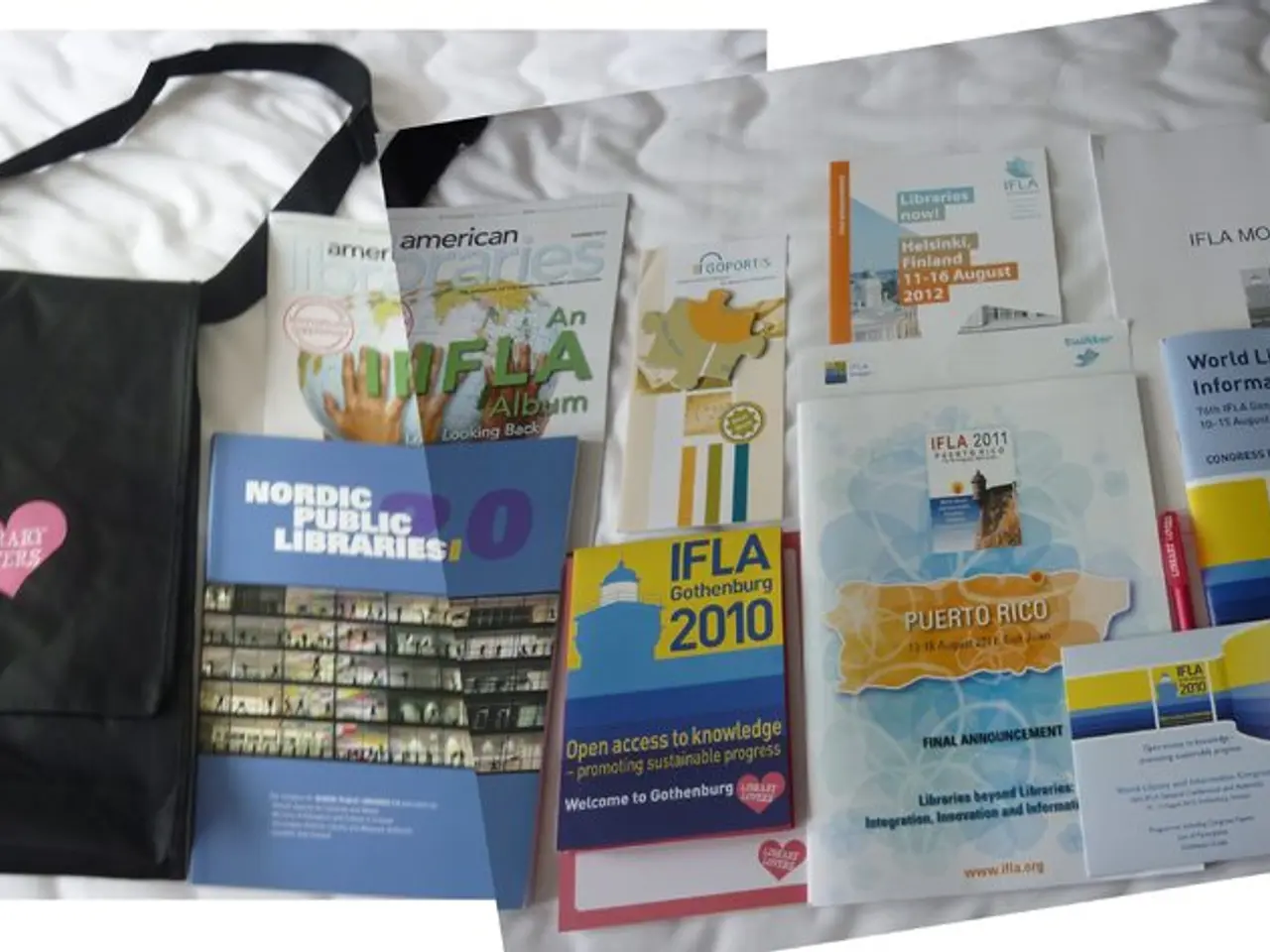Directions for Exploring Uncommon Manuscripts and Distinctive Archives
The Department of Rare Books and Special Collections (RBSC) at Princeton University is a treasure trove for researchers, with a diverse collection spanning five millennia and five continents. The RBSC houses around 300,000 rare or significant printed works, making it a valuable research resource, particularly for historians.
To embark on your research journey, start by using the Princeton University Library Catalog to search for rare books, manuscripts, and archival materials held by the RBSC. This will help you identify holdings in the collection.
Once you've identified potential materials, it's essential to request access with proper identification. You will need a Princeton ID or a special Rare Books access card to use the collections, a process that often requires prior approval or application.
To place requests for RBSC materials, whether they are stored at Firestone, Mudd Manuscript Library, or RECAP, it's best to do so online via the catalog record. Direct physical access to items is typically controlled to protect rare materials, so placing requests in advance allows staff to prepare items for your use.
It's also advisable to familiarise yourself with Library of Congress Subject Headings (LCSH) or other subject tags when searching catalog records. This helps refine searches to primary source materials such as correspondence, diaries, or narratives, which often comprise rare collections.
Planning visits by contacting RBSC staff or consulting guides can save time and ensure you consult the right materials. The RBSC provides research guides and offers assistance in navigating collections. Understanding that collections may have particular strengths or thematic focuses, reviewing collection overviews or research guides at Princeton’s library website can reveal holdings relevant to your research area.
The RBSC has two types of databases: core databases and subject-specific databases. The core databases contain all or most of the material in the RBSC and are more useful for most research projects. The subject-specific databases focus on specific collections, like the Catalog of Princeton University Senior Theses and the Visuals Database for Graphic Arts.
Locating relevant materials in the RBSC may be more challenging than a catalog search on the standard Library website due to the nature of the materials and the evolution of cataloguing practices. However, the Library Finding Aids provide more detailed information about each object in the collections, making your search more precise.
RBSC materials are not allowed to leave the Reading Room. The librarian on duty will bring your material into the Reading Room when you arrive, and will return the material to the shelf when you leave.
Materials retrieved from the vault at Firestone typically take 20-30 minutes, but ordering ahead can reduce the wait time to 2-3 minutes.
The RBSC Reading Room has security measures in place. Bags are not allowed in the Reading Room, but laptops, phones, pencils, and notebooks are permitted. Store other items in C-Floor lockers before signing in.
Registration with the RBSC before your visit is recommended to save time. Registration only needs to be done once.
Undergraduates have nearly complete access to the RBSC collections. RBSC librarians are available for research consultations to help students navigate the catalogs and locate materials.
The RBSC has materials that include one of the first "Wanted" posters for John Wilkes Booth, Beethoven's music manuscripts, and Woodrow Wilson's love letters.
By following these tips and tricks, you can facilitate efficient and successful research within Princeton’s Rare Books and Special Collections.
To delve into your research, scrutinize the Princeton University Library Catalog for rare books, manuscripts, and archival materials housed by the RBSC, particularly the junior paper resources related to education-and-self-development or online-education.
Once you've identified materials, becoming familiar with Library of Congress Subject Headings (LCSH) or other subject tags will help refine your search for primary sources, such as correspondence, diaries, or narratives, often found within rare collections.




